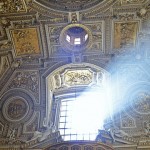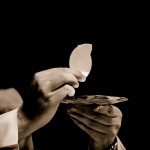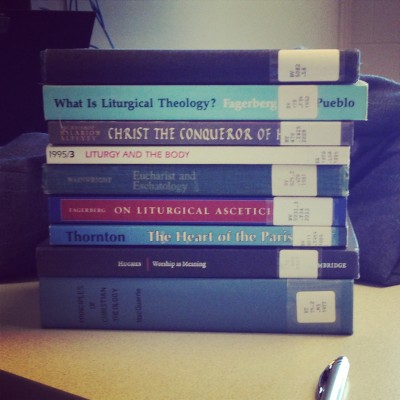This post is part of an ongoing series entitled, “Sunday with Schmemann.” If you have not yet read some of Fr. Alexander Schmemann’s works you can begin with my inaugural post here. My first doctoral writing assignment focuses exclusively on Schmemann’s writing corpus and liturgical theology.
It has been my practice over the last four years to journey through Lent with Fr. Schmemann as my wise guide via Great Lent: Journey to Pascha. This may seem ironic to some seeing as I observe a different calendar—along with Protestants and the Roman Catholic Church—from the Orthodox Church in America and Eastern Orthodoxy. For example, today those adhering to the Revised Common Lectionary celebrated the Second Sunday in Lent while the Orthodox Church celebrated the Sunday of the Publican and the Pharisee.
For me, the important point here is that Fr. Schmemann’s book is timeless and would be a wise addition to anyone’s Lenten reading list regardless of tradition or churchmanship. The words of his opening pages depict a beautiful scene: Lent as a Catechetical School. That is, while the origins of Lent speak to the existence of the catechumenate, and while such a tradition is thankfully vibrant today, there is a catechetical need and blessing for anyone who undertakes to observe a Holy Lent.
His first and opening point about Lent is simplistic and profound. He writes, “When a man goes on a joinery, he must know where he is going. Thus with Lent. Above all, Lent is a spiritual journey and its destination is Easter, ‘the Feats of Feasts.’ It is preparation for the ‘fulfillment of Pascha, the true Revelation,'” (11). Catechetical instruction always has a clear and appointed telos, and end toward which it is heading and for the catechetical school of Lent the destination can only and always be Easter.
In fact, the whole of the Christian calendar and therefore the entirety of the Church’s worship is centered on Easter. Every Sunday is a celebration of the Paschal mystery and feast. Preparation for Easter is therefore preparation for Christian living. Schmemann writes:
And in the center of that liturgical life, as its heart and climax, as the sun whose rays penetrate everywhere, stands Pascha. It is the door opened every year into the splendor of Christ’s Kingdom, the foretaste of the eternal joy that awaits us, the glory of the victory which already, although invisibly, fills the whole creation: ‘death is no more!’ The entire worship of the Church is organized around Easter, and therefore the liturgical year, i.e. the sequence of seasons and feasts, becomes a journey, a pilgrimage towards Pascha, the End, which at the same time is the Beginning: the end of all that which is ‘old’; the beginning of new life, a constant ‘passage’ from ‘this world’ into the Kingdom already revealed in Christ. – Great Lent, 13.
If Easter is the center of the calendar and of liturgical life, then the baptism of converts at the Great Easter Vigil is of the utmost importance. For the early Church much of Lent was devoted to preparing new converts for the sacrament of Baptism. It would be all too easy for us churchgoers to shrug Lent off since we have already been baptized but that is to miss the point entirely. In the words of Fr. Schmemann:
Lenten worship preserves even today its catechetical and baptismal character, it is not as ‘archeological’ remains of the past, but as something valid and essential for us. For each year Lent and Easter are, once again, the rediscovery and the recovery by us of what we were made through our own baptismal death and resurrection. – Great Lent, 14.
There you have it: Lent is our journey toward Easter and toward the rediscovery of our baptismal vows and our death and resurrection. To observe Lent is to become a student in the “school of repentance.” It is to die again, daily and seasonally, to oneself only to find that the One who has redeemed us is still King over all. Lent isn’t just for converts or the newly baptized—no, Lent is for the one holy catholic and apostolic church and through a Holy observance she is taught what it means to be an Easter people, again.

















